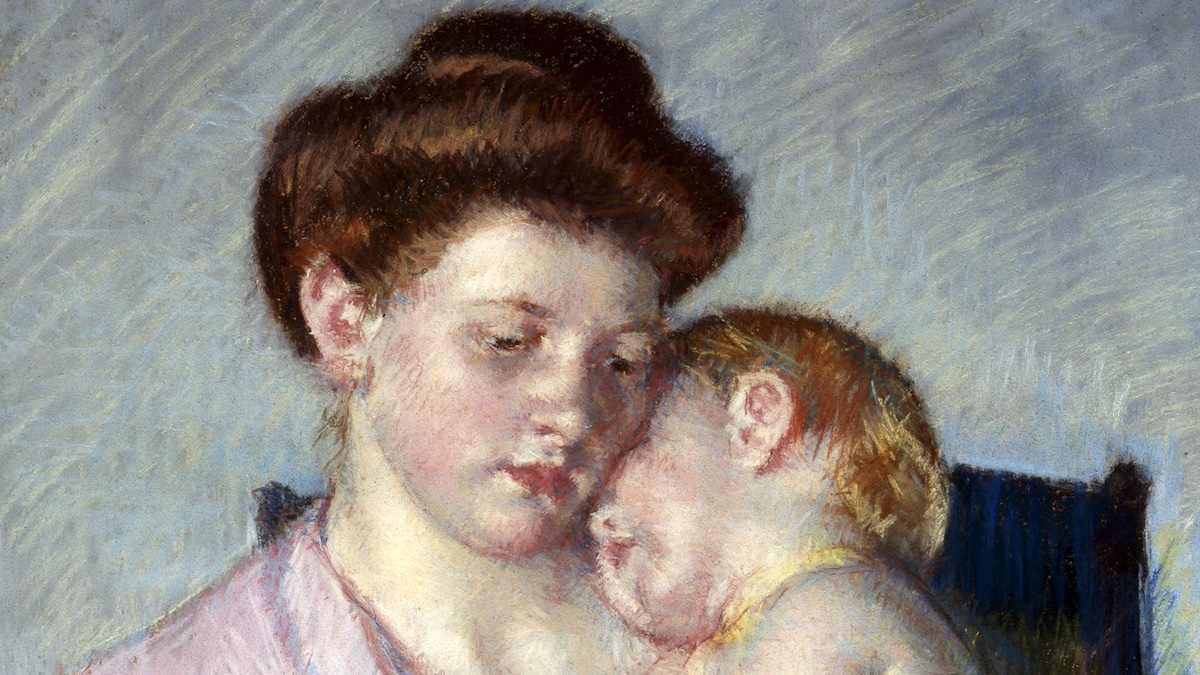As a parenting expert, psychoanalyst, and author, I’ve spent decades navigating the intricacies between advocating for women’s rights and acknowledging the deep, irreplaceable value of motherhood. This journey, enriched by both personal experience and professional observation, has led me to champion a vision I term “maternal feminism.”
This is not merely a theoretical construct. It’s a lived philosophy that seeks to harmonize the gains of second-wave feminism with an unwavering commitment to nurturing the bond between mother and child during those critically formative early years.
The industrial revolution initiated a massive shift in family dynamics, which was propelled forward by the successive waves of the feminist movement. These changes brought necessary rights and recognition to women, but they also had unintended consequences, particularly in the realm of early childhood development. The Industrial Revolution, with its demand for labor away from the home, began the process of rewarding mothers for being away from their children. In a more dramatic way, the second-wave feminist movement challenged the societal value of motherhood. In advocating for women’s liberation and equality, second-wave feminists inadvertently created a narrative that maternal presence could be substituted without consequence.
The pressures on mothers to prematurely return to the workforce do not only undervalue the act of mothering. They also overlook the significant emotional and psychological needs of the youngest and most vulnerable members of society. In my clinical practice, I’ve observed the negative ripple effects of these societal shifts, which were not only economic but emotional and psychological as well. The rise in mental health issues among our children and adolescents—with nearly one in five experiencing a mental disorder—speaks volumes, drawing attention to the cracks in the narrative about the replaceability of mothers in infancy and early childhood.
Pointing out the connection between these issues is not just a professional obligation but a moral one. We must ask ourselves: at what cost do we continue to undervalue the role of motherhood?
The Core of Maternal Feminism
Maternal feminism seeks to mend these cracks. It is a philosophy that upholds the value of mothering as foundational to a healthy society. This vision does not confine women to traditional roles; rather, it elevates the act of mothering as an esteemed and vital contribution to our collective wellbeing.
Central to maternal feminism is the understanding of early childhood development, informed by decades of neuroscience research. A mother’s presence is particularly important in the first three years of a child’s life. These early years are not just a period of physical growth but of profound emotional and psychological development. This stage is marked by an extraordinary phase of neurogenesis, where there is rapid cell growth and development in the brain. During this critical period, the brain’s plasticity allows for the formation of a dense network of neural connections, which is influenced greatly by a child’s experiences and interactions.
This rapid time of brain development creates the foundation for a child’s personality and emotional resilience. Secure attachment, fostered by consistent, loving maternal presence, is crucial during this time. It lays the groundwork for a child’s ability to regulate emotions, form healthy relationships, and navigate the complexities of life.
All babies are born neurologically and emotionally vulnerable. Their healthy development depends on three essential elements:
- Secure attachment to a primary attachment figure
- Emotional security; the feeling of safety and protection from stress
- Having distress soothed to facilitate a return to emotional equilibrium
Mothers, as primary attachment figures, play an indispensable role in this developmental process. They are instrumental in helping their children learn to regulate emotions and cope with stress, which are fundamental capabilities that support mental health and resilience throughout life. This nurturing interaction not only supports the child’s cognitive and emotional development but also forms the bedrock upon which future resilience and mental health are built.
By emphasizing the irreplaceable role of maternal care during this explosive period of brain development, maternal feminism highlights the importance of supporting mothers and caregivers in their roles. It advocates for societal and policy changes that recognize and facilitate the critical work mothers do in shaping the future of society through their influence on the early developmental stages of their children. This includes creating environments that support mothers and recognizing that the work of mothering is foundational to a healthy, thriving society.
Addressing the Challenges
The path of maternal feminism is not without its challenges. Many in our society would argue that prioritizing motherhood is a step backward for women’s rights. Yet, this perspective fails to recognize that maternal feminism is about choice, flexibility, and valuing different contributions equally. It’s about acknowledging that the work of raising emotionally healthy children is as or more critical to our society’s future as any career achievement.
Balancing career and motherhood is a struggle that many women, myself included, know all too well. The societal pressures to achieve and make money and the internal desire to be present for our children create a distressing tension. Through maternal feminism, I advocate for a society that not only recognizes this tension but actively works to alleviate it through supportive policies, flexible work arrangements, and a cultural shift that honors the value of mothering.
Maternal feminism is not about relegating women to the home or diminishing the value of their professional achievements. Instead, it’s about broadening our understanding of value and success. It’s about acknowledging that the well-being of our children lays the groundwork for the future of our society.
The struggle to balance career and motherhood represents a broader societal failure to recognize and accommodate the dual roles many women wish to fulfill. In my own journey, balancing my professional aspirations with my deep commitment to being present during the formative years of my children’s lives required not just personal sacrifice but also a reevaluation of what success really means. It meant navigating societal pressures that value and reward professional achievement over personal fulfillment and societal contribution through nurturing future generations.
The path forward requires not just individual efforts but systemic change. We need policies that genuinely support work-life balance, including paid parental leave, and flexible working hours. Moreover, we need a societal shift in attitudes that recognizes and values the work of mothering, not as a secondary task to be squeezed in around “real work,” but as foundational to the health and future prosperity of our society.
The Role of Policy and Society
For maternal feminism to move from concept to lived reality, it requires robust support from both policy and societal structures. The call for supportive policies is not just about easing the burden on individual families but about recognizing and valuing the essential work of raising emotionally resilient and healthy children.
Improving maternity leave policies is a fundamental cornerstone of maternal feminism. By advocating for mothers to have the opportunity to be present during the pivotal early years of their child’s life, we are directly supporting the developmental needs and emotional health of the next generation. It is a shame that the United States is one of the only developed nations that does not mandate paid maternity leave. Many other nations, such as Bulgaria, Hungary, Austria, and Norway, have over one year of paid maternity leave. This level of support from other countries acknowledges the profound impact of sustained maternal presence on early childhood development and aligns with the principles of maternal feminism, which emphasizes the critical role of mothering in fostering a healthy society.
At least one year of paid maternity leave should be the standard, not the exception. Such a policy would not only support the neuroscientific understanding of the importance of early years for brain development and secure attachment but also affirm the societal value of motherhood. This approach recognizes that the act of mothering—especially in the earliest stages of a child’s life—is foundational to the well-being of our society as a whole.
In addition to paid maternity leave, flexible work arrangements and the normalization of part-time work for mothers—without penalty or stigma—would further acknowledge the importance of a mother’s presence and involvement in the early childhood years. Furthermore, workplaces should have policies that enable parents to take paid leave for family commitments without feeling a need to apologize for or hide the reasons they are taking time off. These measures would provide mothers with the flexibility they need to balance both professional aspirations and caregiving, reflecting a societal shift towards truly valuing the multifaceted contributions of women. Companies that embrace these principles will not only contribute to the overall well-being of their employees but also set a new standard for corporate responsibility in supporting women.
A Call to Action
The journey toward embracing maternal feminism is both a personal and collective one. It requires us to challenge deeply ingrained societal norms and to advocate for change in the spaces we inhabit, from our homes and workplaces to the halls of government. Maternal feminism is not just a theory; it’s a call to action. We must work together to build a more compassionate and family-centered society.
As we look to the future, let us draw inspiration from the principles of maternal feminism, recognizing the profound impact that our support for the maternal bond can have on the development of our children and the health of our society. Let us work together to create a world where women do not have to choose between their careers and their families, where the value of mothering is celebrated and supported, and where every child has the opportunity to grow up with the love, security, and guidance they need to thrive.
This vision for maternal feminism is not only achievable but essential. Together, we can build a world that honors motherhood and meets the needs of children, laying the foundation for an emotionally healthier and more resilient society for generations to come.



